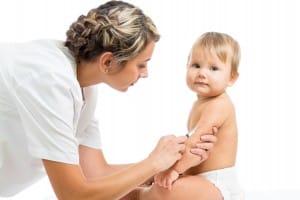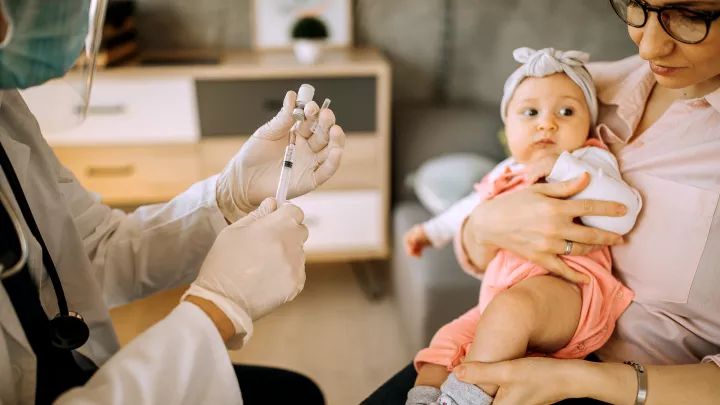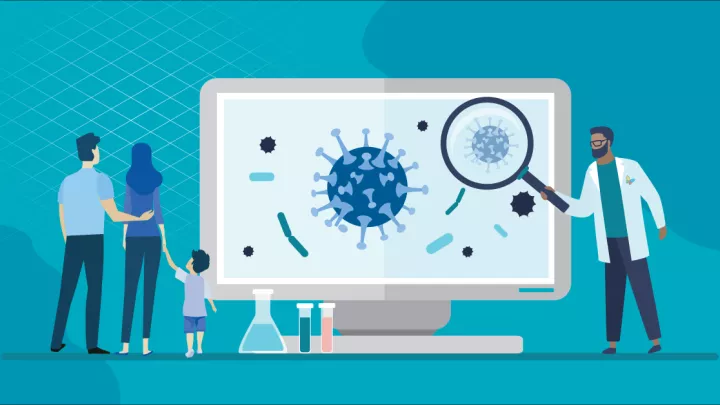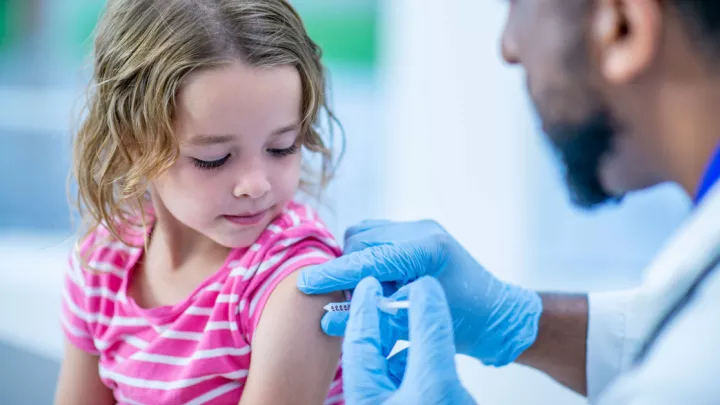Keeping Children Safe From Measles
Growing up in the ‘50s, childhood diseases seemed unavoidable. For example, all my siblings experienced chickenpox and one of my neighbors was affected by polio. Then vaccinations became more available to families for prevention of disease and illness like the chickenpox, hepatitis and flu. Vaccinations help make a child’s world safe from life-threatening disease and promote health.
Measles can make your child really sick, and even though there is a vaccine, there is a measles outbreak right now because many parents are refusing vaccinations for their children. According to the Centers for Disease Control and Prevention, measles is so contagious that if one person has it, up to 90% of the people close to that person who are not immune will also become infected. Travelers can also spread the measles virus because of little to no vaccinations in other countries. I partnered with Jeffrey Bender, MD, medical director in the Division of Infectious Diseases at Children’s Hospital Los Angeles, because I want to shed light on measles and provide ways you can help keep your family safe and healthy.

Measles Facts
- Measles is highly contagious, so vaccinating your child is extremely important.
- Up to three children out of every one thousand who get measles will die.
- Serious complications can also occur, including pneumonia, loss of brain function and encephalitis (inflammation of the brain).
- Babies are more at risk for measles because they cannot be vaccinated until their first birthday.
- Measles cases are more severe in adolescents.
Please visit the County of Los Angeles Public Health website for more up-to-date information on symptoms and resource for you and your family.
Measles Signs and Symptoms
Signs and symptoms will begin to appear five to ten days after your child is exposed to measles.
First Signs and Symptoms
- Coughing
- Fever, which can be very high (around 103-104 degrees Fahrenheit).
- Loss of appetite
- Red eyes
- Runny nose
- Tiredness
Secondary Signs and Symptoms (two to four days after first signs and symptoms)
- A rash of tiny red spots (sometimes bumpy) start on the face and head and may appear in the mouth and spread across the body
Who is Most at Risk for Measles?
- Those with a compromised immune system
- Health care workers
- Teachers and day care workers
- Students
- Persons who have not been vaccinated
- Tourists or travelers

Prevention of Measles
There are two vaccinations your child will need to prevent measles. The first vaccination will be given to your child at 12 to 15 months. The second vaccination will be given when your child is between the ages of 4 and 6. Getting your child vaccinated is a leap toward preventing serious illness so they can do what they do best—being a happy, healthy kid.
"Get your child vaccinated. Los Angeles is an international city with people visiting from all over the world. Measles spreads very quickly and easily through unvaccinated populations and can be devastating," says Dr. Bender, attending physician in CHLA’s Division of Infectious Diseases.
Measles Treatment
Your child’s physician may do some of the following if a child becomes sick with measles:
- Prescribe a Vitamin A supplementation to treat measles
- Prescribe medicine for fever, pain and cough
- Prescribe antibiotics for infection from scratching the rash
- Provide intravenous fluids
- Recommend bed rest
- Recommend frequent lukewarm baths for the fever and itchiness
Observe for signs of sudden fever, headache, vomiting, drowsiness, convulsions or coma, which may signal encephalitis (inflammation in the brain). Also:
- Look for changes in behavior or level of consciousness such as seizure activity or drowsiness, as that may be a sign of encephalitis.
- Watch for symptoms of breathing difficulty, because complications such as pneumonia may occur.
- Require that your child stay away from others because it is contagious from the droplets from coughing.
Prevention is the goal. Please talk to your health care provider about the value and importance of vaccinations for the health of everyone in your community and your world.You can also visit the County of Los Angeles Public Health website for more up-to-date information on symptoms and resource for you and your family.


